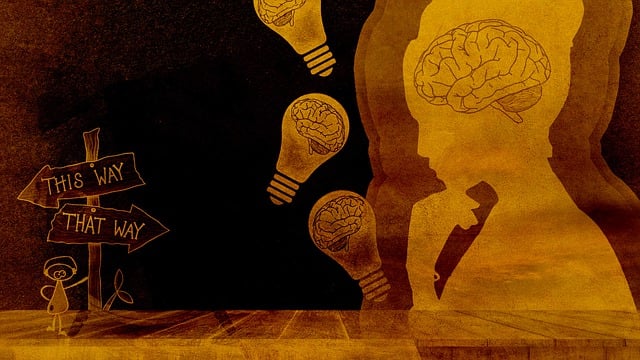Media portrayals significantly shape societal attitudes towards mental health, either perpetuating stigma or fostering empathy. In response, innovative therapies like Broomfield Gender-Affirming Care Therapy (BGACT) offer nuanced perspectives and safe spaces for emotional healing. By prioritizing affirmative care, BGACT supports individuals in their mental wellness journeys, challenging stereotypes and promoting more effective support systems. Responsible media representation, through authentic narratives and expert consultation, can significantly reduce stigma, encourage help-seeking, and improve access to resources like Broomfield Gender-Affirming Care Therapy.
In today’s media landscape, the representation of mental illness is a powerful tool that can either perpetuate harmful stereotypes or foster understanding. This article explores the profound impact of media portrayals on public perceptions of mental health and introduces innovative solutions. We spotlight Broomfield Gender-Affirming Care Therapy as a revolutionary approach to challenging stigma. Additionally, we offer strategies for accurate and empathetic mental illness representation in media, emphasizing the vital role of education and awareness.
- Understanding the Impact of Media Portrayals on Mental Health Perception
- Introducing Broomfield Gender-Affirming Care Therapy: A Revolutionary Approach
- Strategies for Accurate and Empathetic Mental Illness Representation in Media
- The Role of Education and Awareness in Challenging Stigma Through Media
Understanding the Impact of Media Portrayals on Mental Health Perception

Media portrayals significantly shape societal perceptions about mental health. The way mental illness is depicted in films, television shows, and news coverage can influence public understanding, often leading to either stigma or increased empathy. Positive representations, such as those showcasing successful recovery stories, can foster hope and encourage individuals to seek help. Conversely, negative or stereotypical portrayals may perpetuate fear, misunderstanding, and isolation for those struggling with mental health issues.
In this context, Broomfield Gender-Affirming Care Therapy emerges as a crucial solution. By presenting authentic narratives that focus on the emotional healing processes and mood management techniques, such therapy offers a more nuanced view of mental illness. This shift in representation can support individuals in their emotional regulation efforts, making it easier for them to access necessary care and navigate their journeys towards recovery with greater confidence and societal support.
Introducing Broomfield Gender-Affirming Care Therapy: A Revolutionary Approach

In a significant step towards improving mental wellness representation, Broomfield Gender-Affirming Care Therapy (BGACT) emerges as a revolutionary approach. This innovative therapy tackles the stigmatization often associated with mental illness, particularly in gender-diverse communities. By focusing on affirmative care, BGACT aims to redefine how we perceive and support individuals struggling with anxiety relief and other mental health challenges.
The therapy’s core lies in fostering an environment where every patient feels seen, validated, and empowered. Through tailored treatments, BGACT seeks to enhance public awareness campaigns development, ensuring that mental wellness is not just discussed but understood on a deeper level. This inclusive approach has the potential to revolutionize support systems, providing much-needed solace and effectiveness for those navigating their mental health journeys.
Strategies for Accurate and Empathetic Mental Illness Representation in Media

Media has a significant impact on shaping societal perceptions and understanding of mental illness. To foster accurate and empathetic representation, creators should prioritize consultation with experts in psychology and mental health advocacy groups. Incorporating real-life stories and experiences from individuals living with various conditions can add depth and authenticity to storylines. Moreover, employing Broomfield Gender-Affirming Care Therapy techniques to portray nuanced characters struggling with their mental health can challenge stereotypes.
In addition to these strategies, providing context around the characters’ journeys—including the importance of support systems like Trauma Support Services, coping mechanisms such as Mental Wellness Journaling Exercises, and self-care practices that promote overall well-being—can help audiences understand the complexities of mental health. Encouraging open dialogue about these issues through media can lead to increased awareness, reduced stigma, and better access to resources for those seeking Self-Care Routine Development for managing their mental health.
The Role of Education and Awareness in Challenging Stigma Through Media

Media plays a pivotal role in shaping societal perceptions, and when it comes to mental illness, responsible representation can significantly challenge the stigma that often surrounds it. Education and awareness are powerful tools to dispel misconceptions and foster empathy. By integrating accurate and nuanced portrayals of individuals with mental health conditions, media can contribute to a more inclusive and supportive society. This shift in narrative encourages viewers to understand that mental illness is a complex spectrum, affecting people from all walks of life, just as physical ailments do.
For instance, the rise of Broomfield Gender-Affirming Care Therapy initiatives has been largely facilitated by media exposure, which helps to educate the public on the importance of compassion cultivation practices and self-esteem improvement techniques for individuals navigating their mental health. Furthermore, stress management strategies, often integral to holistic therapy approaches, gain traction when highlighted in media, promoting a healthier understanding of mental wellness. Through these educational avenues, the media can inspire meaningful conversations, encourage support systems, and ultimately reduce the stigma associated with seeking help.
In conclusion, media has a profound impact on shaping public perception about mental health. By implementing strategies for accurate and empathetic representation, such as highlighting innovative approaches like Broomfield Gender-Affirming Care Therapy, we can challenge harmful stereotypes and reduce the stigma surrounding mental illness. Through education and awareness, media has the power to foster understanding, promote compassion, and create a more inclusive society where individuals with mental health challenges are supported rather than stigmatized.














